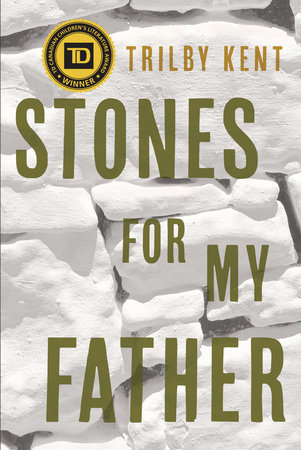
As you may or may not know, "The Stone Book" is the first in a quartet of stories following a family throughout several generations. For my own part, I learned about the series through a hoity-toity British literary periodical entitled, "Children's Literature In Education". The article I read mentioned that these were great lost classics and that anyone who knows ANYTHING about kiddie lit (as I like to call it) should be familiar with these books. The fact that this book won a coveted Phoenix Award years ago cemented the deal for me. The Phoenix Awards are given to children's books that, some believe, haven't gotten the attention they so richly deserve. So the real question becomes, is "The Stone Book" worthy of attention? Should children everywhere have to read it? And the answer is yes and no.
This tale takes place in Victorian England and is all of sixty pages. Really, it's not much more than a short story in book form. In this tale, young Mary goes to a nearby church that her father is building. Her dad's a stonemason and is exceedingly good with rocks of all kinds. Mary cannot read, though her father can, and one night she asks him for a book as a present. In answer, he takes the girl with him to a cavern between the rocks. Leading her to a tight passage, he gives her strict instructions that she must follow. He tells her that once she reaches the end of the cavern she must come back and let him know if she still wants that book. Mary goes and discovers ancient cave paintings as well as footprints from hundreds of people before her. On returning to her father she is told that it has been a tradition in their family for the father to bring his eldest child (usually a son) down to that cavern and that it has been done for hundreds of generations. That night, Mary receives a book like no other and that, in a way, tells the tale of that day's adventures.
There's a great deal going on in this tiny creation. Discussions about rocks come up frequently, often touching on the fossils and ancient (one might even venture, prehistoric) footprints that are found in the region. This leads, inevitably, to religion, the unspoken possibility of evolution, and the nature of literacy itself. One of the many debates in this book happens between Mary's father and her uncle Old William. Old William contends that books are a waste of time and only make people discontented with life. Mary's father is of the opinion that true wasted time is doing work every day and never showing anything for it. There's even a suggestion that Mary's father is discontented with his life, a fact that comes out when he gives in to the urge to drink once in a while.
And all this happens in a scant sixty pages. Reading it, I found myself (for a long time) wondering if kids would like to read it. Seems to me that this book is a real contender for the books-adults-love-and-kids-ignore category of the library. Sure, there are deep rich meanings just waiting to be dug up throughout the text. Sure, this book tackles big subjects in a small clear way. But how many children are going to pick this puppy up voluntarily and enjoy it? Until Mary found herself alone in the deep dark cavern, I doubted that much of anything in this story would hold their interest. Perhaps that's why this book has been as forgotten as it is until now. If the kiddies don't dig it, what's the point?
In short, "The Stone Book" succeeds and fails. It succeeds because it truly is a wonderfully written tale. It's a great look at daily life in a far distant time. It fails because I can't see many kids today successfully sinking their claws into the text. If you want something with a modicum of intelligence for yourself, enjoy. Just don't go handing it out to any five year olds you know.
No comments:
Post a Comment